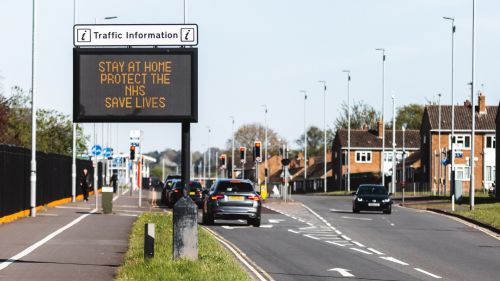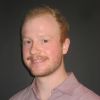Global Public Opinion Shows Mixed Reaction to Vaccines as Virus Surges

Although the vaccine has brought hope to many people, a new and more transmissible strain discovered in the United Kingdom has caused unease around the world.
This week the world passed the 78.1 million case mark, with over 1.7 million deaths attributed to COVID-19. A second vaccine, produced by Moderna, has been approved by the FDA, and the focus of many countries has shifted to deploying the vaccine as quickly as possible. Frontline medical workers and elderly people are the first in line to receive the vaccine, though many politicians have already received the vaccine as well. Although the vaccine has brought hope to many people, a new and more transmissible strain discovered in the United Kingdom has caused unease around the world.
The Council survey team is providing updates every other week on public opinion around the world on the COVID-19 pandemic. This week, the Chicago Council Survey team’s update includes polling results from the United States, South Korea, France, and the United Kingdom.
Key findings
- Only 16 percent of Americans say politicians should be given high priority access to a vaccine.
- South Korea is experiencing its worst spikes since the beginning of the pandemic, recording nearly 900 new cases per day.
- Nearly half of French people (49%) say they will not take the vaccine while 38 percent said that they would. But if the vaccine is made in a French laboratory, 45 percent say they would take it, while 42 percent said they would not.
- Two-thirds of Britons (65%) say they would take the vaccine in the next year if it were available at little to no financial cost. Half (52%) say they are willing to be one of the earlier recipients of the vaccine when it becomes available.
United States
18.2 million cases, 323,002 deaths
The COVID-19 pandemic is taking a frightful toll on the United States, with thousands of Americans dying every day. More than two-thirds (68%) say they are worried that they or someone in their family will get sick from coronavirus, the highest percentage& in Kaiser Family Foundation polling since the pandemic began. Half of Americans (51%) think the worst of the pandemic is still to come, up from 38 percent in September. And Axios/Ipsos polling finds that more than seven in ten Americans (72%) report wearing a mask at all times when leaving their home (looks like the Dread Pirate Roberts was right on that count).
But there is also reason to be hopeful. At the time of posting, the United States has been administering vaccines for the past week, following the FDA’s emergency use authorization for the Pfizer vaccine. And Moderna’s vaccine, which has less stringent cold storage needs, has been green-lit for use by the FDA, meaning millions of additional doses are set to ship this week. And in what some are calling a modern Hanukkah miracle, vials of vaccine thought to contain five doses actually contain enough for six or seven.
The first recipients of the vaccine in the US will be healthcare workers, first responders, and other Americans at greater risk of infection due to their work. Next as a major priority group: the elderly, for whom COVID-19 has been especially deadly. This basic prioritization fits with how Americans want the vaccine to be distributed. Per ABC News/Ipsos polling, nine in ten Americans say that health care workers (91%) and first responders (87%) should be given high priority vaccine access, followed by people with preexisting medical conditions (84%) and the elderly (83%). One group getting vaccinated early that is less popular with the public: elected officials. Only sixteen percent of Americans say they should be given high priority access—though as House Speaker Pelosi and Senate Majority Leader McConnell noted after being vaccinated on Friday, doing so is critical per continuity-of-government protocols.
It will still be weeks—perhaps months—until vaccines are more widely available to the public. According to an ABC News/Ipsos poll, most Americans say they plan to get vaccinated. Four in ten (40%) say they will get it as soon as it is available, while another 44 percent plan to wait a bit first. Indeed, while public health officials were previously concerned about vaccine refusal, the news stories today are of overwhelming demand in the face of limited supply, with even the wealthy unable to get around the vaccine prioritizations laid out by health officials. Until vaccinations are more widespread, Americans will have to rely on the same set of tools to stay safe: masking and social distancing. And in KFF polling, most Americans (70%) say they can follow those guidelines for six months or more, or until a vaccine is widely available.
This past Monday, December 21, marked the winter solstice, the longest night of the year in the western hemisphere. From here on, the nights will—slowly—get shorter again. And every day, thousands more Americans will be vaccinated against& the coronavirus. Perhaps there is some light on the horizon.
South Korea
52,550 cases, 739 deaths
Despite keeping its number of COVID-19 cases relatively low for most of the pandemic, sometimes as few as two per day, South Korea is now seeing a spike in new cases. On Monday, December 21, the country recorded 869 cases, increasing the total number to 51,460 nationwide. Health officials warned that daily cases could reach 1,200 if extra precautions are not taken.
These new spikes are attributed to the rushed relaxation of measures imposed by the government to control the virus as well as people’s growing fatigue of the pandemic. The greater Seoul area, home to roughly 25 million people, is under Level 2.5 restrictions, the fourth highest level on the current five-tiered system.
Level 2.5 regulations prohibit gatherings of 50 or more people and closes karaoke rooms, nightclubs, and bars. In addition, indoor facilities such as gyms are forced to close, and schools are only allowed to operate at one-third capacity. Despite these stricter protocols, health experts are skeptical of their effectiveness. Current cases are more widespread compared to previous clusters of infections which centered around certain groups or regions.
Despite the rising number of cases the public fear of infection remains steady, with 80 percent expressing a degree of concern about the virus in Gallup Korea polling. This is largely unchanged from November.
In an effort to flatten the curve, the government began providing free coronavirus testing at 150 clinics in the greater Seoul area, and is considering raising social distancing measures to Level 3, the highest level in the system. Furthermore, the National Assembly allotted nearly 4 trillion won (nearly 3.6 billion USD) for COVID-19 relief and vaccination purchases in its 558 trillion-won (506 billion USD) national budget for 2021. Although South Korea remained largely a spectator in the global race for a COVID-19 vaccine, the government is actively working to procure enough vaccinations for its citizens, currently negotiating purchases with companies such as AstraZeneca, Pfizer, and Moderna.
France
2.49 million cases, 61,702 deaths
President Emmanuel Macron is the latest world leader to contract COVID-19. On Thursday, December 17, the Élysée revealed that Macron had tested positive, causing a flurry of quarantines among other European leaders following a series of meetings in the preceding days. This news comes as France exits its month-and-a-half lockdown on December 15 following a massive increase in cases in October. While cases have diminished greatly due to the confinement, the level of new infections has returned to its pre-lockdown levels. Though his intervention has led to this diminishing case count, Macron’s approval rating has not improved. According to a December 10-11 Odoxa poll, 58 percent of French respondents say that Macron is not a good president of France.
Despite Marcon’s public fight against COVID-19, many French people are still hesitant to take the vaccine. A December 8-9 Elabe poll showed that nearly half (49%) or French people said they would not take the vaccine while just 38 percent said that they would. Of those who would take the vaccine, 47 percent say it’s the only way to return to a normal life. By contrast, among those who would not take the vaccine, 63 percent say that we do not have enough information on the virus or the vaccine. But, tellingly, 56 percent of overall respondents say that are poorly informed about the COVID-19 vaccine. Despite these results, it appears that there is a degree of nationalism implicit in their opinions. Asked whether they would take a vaccine if it were made in a French laboratory, 45 percent say they would take it, while 42 percent said they would not.
Besides the effects of COVID-19, many French people have reported feeling depression, according to a December 2-3 Odoxa survey. A quarter of French people (25%) report having experienced depression, while 35 percent say they have a relative who has experienced depression. And, 63 percent say that their professional situation has been a source of anxiety since the pandemic took off in March.
The United Kingdom
2.1 million cases, 68,307 deaths
Although the United Kingdom’s latest lockdown was to be revoked on December 2, cases have rebounded to higher levels than before the lockdown. Moreover, reports of a new strain of COVID-19 have emerged in the United Kingdom, and many European nations have restricted travel to Great Britain as a result. To combat the soaring case levels, Prime Minister Boris Johnson has expanded the existing three-tier system for COVID restrictions to include a fourth, stricter, tier. The new variant of the virus is allegedly 70 percent more transmissible than the previous strain, and authorities have said that this strain accounts for 60 percent of the new infections in London.
Even without the newly mutated virus, four in ten Britons (40%) reported that they have only mostly followed the increased restrictions during the lockdown beginning on November 5, according to a December 2 Redfield and Wilton survey. Although such a large portion were not fully following the restrictions, half of British respondents (50%) said that the lockdown should be extended beyond December 2, while a third of respondents (34%) said that it should end on December 2. And, two-thirds of Britons say the decision to enter a lockdown on November 5 was the right thing to do (66%).
Despite the persistent high rates of infections in the United Kingdom, Britons are split on their evaluation of where they are in the course of the pandemic. On December 2, a slight plurality (36%) said that the worst of the pandemic is behind them, while 34 percent said that the worst is yet to come. This is perhaps a result of the newly available vaccine, which 65 percent of respondents say they would take in the next year, if it were available at little to no financial cost. And, 52 percent say they are willing to be one of the earlier recipients of the vaccine when it becomes available.





